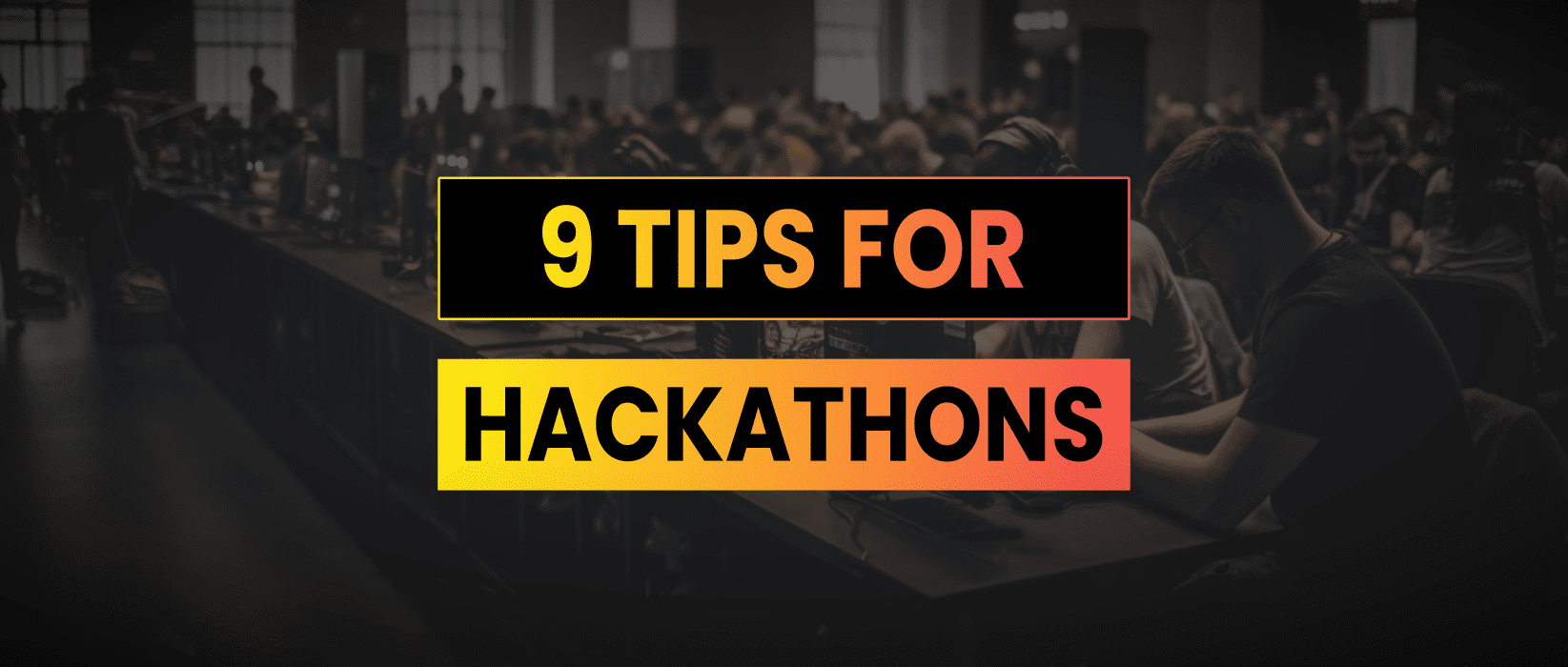Hackathons are a great way to socialise with other developers and build projects over a short period of time for fun and profit.
- Work on something you are passionate about
- Join a great team or be the star of a bad one
- Spend first few hours coming up with a compelling idea
- Build on sponsors technology
- Manage your time & expectations efficiently
- Use boilerplates and preset frontends
- Design is more important than product
- Allocate time for the presenter to practice
- Make connections and enjoy the experience

Work on something you are passionate about
This starts with choosing a hackathon that is based on tech that you are interested in. I’m most interested in blockchain and web3 so the hackathons I participate in are generally related to that such as:
- https://ethglobal.com/events/hackathons
- https://www.encode.club/hack
- https://bounties.gitcoin.co/hackathons
Once you’ve found a hackathon that suits you and your skillset sign up and get ready to build.
Join a great team or be the star of a bad one
The people you work with in life make a big difference to your satisfaction levels and it’s no different with hackathons. Most will allow you to sign up with a group of friends or colleagues to form your own team or you can participate in matching programmes where you’ll be allocated to a team.
Some hackathons allow you to work alone which is OK if you have a specific agenda and want to build something yourself but you will miss out on a lot of the social aspects of the event.

Spend first few hours coming up with a compelling idea
Brainstorm, use ChatGPT, look at whats out there already.
Most hackathons will have a theme or tracks that you can build products towards. Sometimes this isn’t announced until the hackathon gets underway to prevent people starting early.
Once you know the tracks then have a group discussion with the team to try and come up with a compelling idea. A valuable idea (even if it turns out to be unfeasible) is so much easier to pitch at the end of the hackathon.
If you can find something that you are excited to build then judges will hopefully be excited by it too.
Build on sponsors technology
Most hackathons will be sponsored by technology providers. Often they will contribute prizes either directly to teams using their tech or they will have a bias towards teams building on their technology.
By using sponsors products it gives you a better chance of winning prizes which are ultimately funded by the sponsors themselves.
Manage your time & expectations efficiently
Hackathons normally run from a few days to a few weeks and most people in the event have other commitments, some might even have a real job.
It’s important to manage time effectively to ensure that a prototype at least looks like it works if it’s tested by judges.
Use boilerplates and preset frontends
Boilerplates are great for hackathons as it gives a familiar starting point which can save hours in setting up basic infrastructure.
Most hackathons will have rules to say you can’t use previous code but boilerplates are an exception. You can create a standard React dApp frontend and have generic contracts and unit tests in place all setup on Github before the hackathon starts.
Design is more important than product
I’ve been guilty in the past of focusing on the backend smart contracts to the detriment of standing any chance of winning prizes. Your smart contracts may be beautifully elegant and hold technical merit but the chances are that the judges aren’t going to be reading them.
Judges will watch the presentation, maybe try a demo but the chances of them browsing your github to admire the code you just dedicated the last 48 hours of your life to is minimal.
Focus on the idea, and prototype design more than the backend functionality. Features and bells and whistles can be added later. You want it to work but you don’t need it to be perfect for a hackathon entry.
Make the demo look beautiful, like a real product. A impressive UI holds much more merit than backend code that no one will see.
Allocate time for the presenter to practice
The pitch is critical. It’s what judges will base the vast majority of their decision on. You should get the most presentable person in the team to come up with a short pitch demoing what you have built.
The standard formula for a demo pitch is:
- Problem
- Solution
- Demo
- Conclusion
Make sure you allocate time for the presenter to practice and get the whole team to give feedback. If you spend more time on perfecting the presentation and less time on perfecting every line of code, you’ll win more prizes at hackathons.
Make connections and enjoy the experience
Hackathons prizes are great, over the years I’ve probably won 5 figures in tokens and cash prizes. It’s insignificant compared to the value gained in industry connections and networking with the community.
There is no better place for developers to get together, experiment, learn and socialise
Online hackathons are convenient and accessible for everyone but if you have the chance to participate in a IRL hackathon then I’d highly recommend it as nothing beats seeing how other people work face to face.
Don’t take it too seriously, enjoy the experience, keep building.



